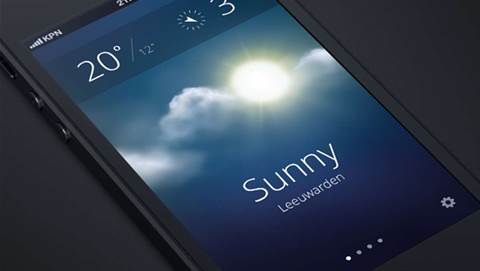Researchers from Monash University and the ARC Centre of Excellence Climate Extremes and Bureau of Meteorology are trying to localise their understanding of storms, tornadoes and floods with a citizen science app for self-reporting weather observations.

The WeatheX app can be used to report and photograph hail, strong winds and heavy rain events that Australia’s relatively sparse weather monitoring network would otherwise miss.
At the moment a lack of granular data limits the understanding of how storms move, develop and impact communities - meaning storm predictions can be patchy or broad at best.
“Extreme rainfall events often happen in very localised areas – you can have a downpour in one area and five minutes drive away it is still bone dry – so it’s very hard to get useful observations when recording stations are so far apart,” said one of the researchers behind the WeatheX app, Monash University’s professor Christian Jakob.
“If citizen scientists can help us fill these gaps, then we can get more detail of these extreme events and potentially improve our understanding of how they develop, which could improve our prediction of severe weather events and their likely impacts.”
Better weather and climate predictions serve more than just scientific curiosity - insurers are keenly developing climate and storm models to better understand the risks severe storms pose to their clients and risk books.
The researchers won’t be collecting any identifying information from app users users - names, email addresses and phone numbers aren’t required to use the app and any faces or licence plates will be removed from photos.
The weather app will only record the type of weather event, user descriptions, photos (optional) and the location of the observations (minus the street name).
The data will be stored for use by the Climate Extremes centre, Monash University School of Earth, Atmosphere & Environment, and the Bureau of Meteorology.
“If enough people download the app and start sending in their observations, then this project could provide a quantum leap forward in documenting and understanding extreme events in Australia,” said fellow WeatheX researcher from Monash Dr Joshua Soderholm.
“This can actually have profound impacts on understanding the science of storm. And if you’re a stormchaser, your observations could improve storm forecasts, meaning your chances of capturing photos of extraordinary storm events can only improve.”


.png&h=140&w=231&c=1&s=0)
.jpg&h=140&w=231&c=1&s=0)
.jpg&h=140&w=231&c=1&s=0)

















